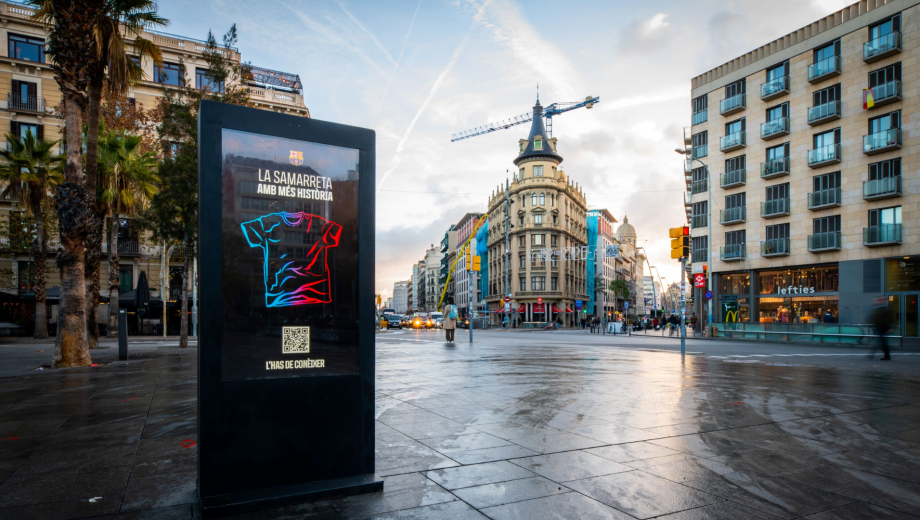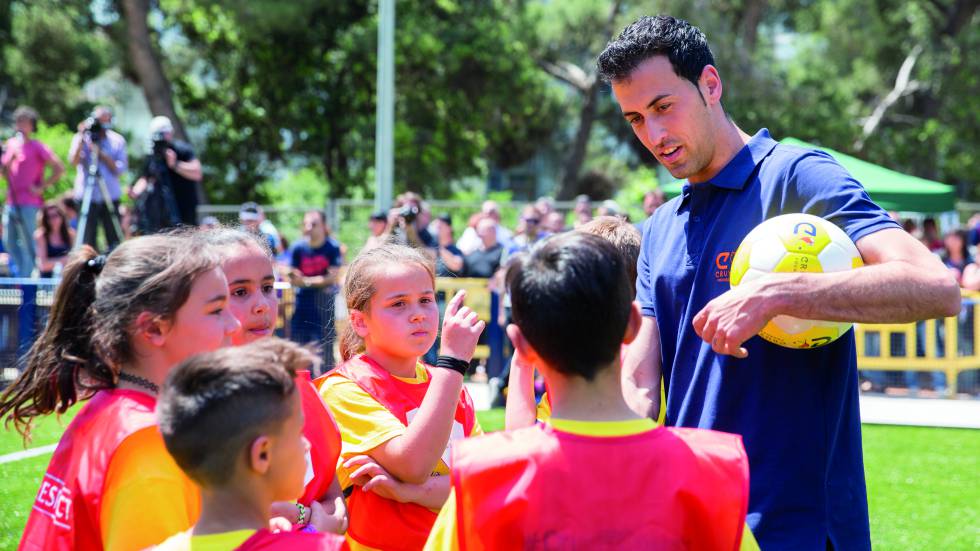FC Barcelona Mas Que Un Club
There is no exact meaning behind the expression Mas Que Un Club (more than a club) that defines FC Barcelona. “It’s hard to explain, everyone has their vision, it’s a feeling, an opportunity, a union,” says Jordi Cardoner, vice president of the club. After a moment’s pause, he says: “Its best expression is the Foundation, a willingness to seek the well-being of children, a way of being close to our people.”
Formed 25 years ago by the former President, Josep Lluís Núñez, the Fundació Barça is one of the pioneers in connecting football and solidarity in Spain. They work in three main fields: inclusion, prevention of violence and education. “We use sport as a socio-educational tool,” explains Maria Vallès, the Fundació’s director, “Our goal is to support young people in vulnerable situations and professionalise the resource of sport in favour of social transformation.”
Through its own initiatives or in partnership with partners such as Unicef, Acnur or the Red Cross, its programmes, which are as diverse as using football to promote the integration of refugees in Lebanon, the socialisation of children in the favelas of Rio de Janeiro or the improvement of the well-being of hospitalized children. With a budget of €17.4 million they were able to reach out to, and help, more than one and a half million children across 59 countries.
That does not look like a hospital
Adrià de las Heras, 13 years old, has been hospitalised for one week at Germans Trias i Pujol hospital in Badalona with an eye infection and is tired of spending hours lying in bed but Adrià knows that today is not just any other day at the hospital. Without leaving his room, he is able to walk around and take in the experience of the Camp Nou remotely through the eyes of a robot named Pol, equipped with two cameras and seven microphones.
“Anything that encourages, that stimulates, that makes children forget that they are sick here is very important, also for families,” says Dr. Rodrigo, head of the hospital’s pediatric service. “It’s all very fluid, and you get to have a good time,” says Marc Para, a Barça partner for 17 years and one of the two volunteers who accompany Adrià in the process.
Adrià guides the robot Pol up to the European Cups and the shirts of Schuster and Stoichkov. “With these taco boots and this string ball we used to play when we were little, just imagine!” Exclaimed the guide’s voice, in real time, from the stadium.
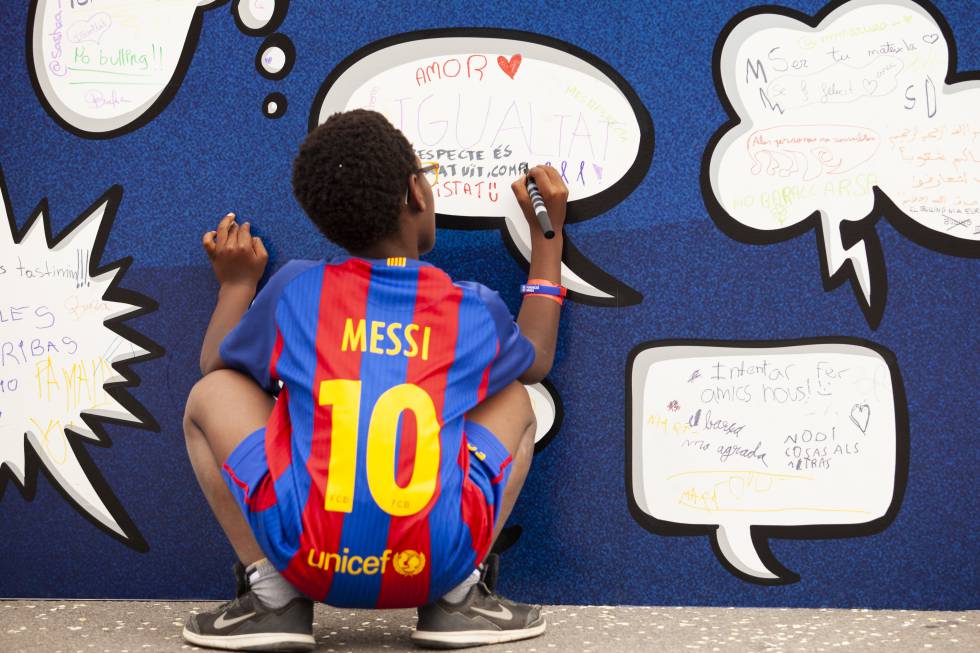
The best social medicine
The work of the Fundació Barça is diverse and wide reaching. We now jump into the courtyard of an institute in the La Mina neighbourhood in Barcelona, where there is a high level of unemployment and immigration. Here football is played but not in the normal way, the rule being that there are no fixed rules: this afternoon, if someone scores a goal, you should celebrate doing it with your teammates. For the goal to be valid, each player must touch the ball at least once. It is the premise of FutbolNet, an active methodology in 55 centers in 43 Catalan municipalities.
“We think how we want to play, we play and then we analyse if we have favoured participation outside the technique, if everyone has felt at ease”, details Ramón Garriga, coordinator of FutbolNet in Catalonia. “Through sports, we seek to change the story, to mix populations that are normally stigmatised or in contexts of vulnerability.”
Adam Abas, 13, tells one of his favorite rules: “Sometimes we agree that there is a secret player who doubles as a mark”. Her friend Erika, 11, adds: “And if someone falls, you have to help them.” The activity, aimed at kids between 11 and 16 years old, takes part after school hours. “These are key hours for the socialisation process”, summarises Òscar Tàrrega, director of the IES Besòs, an innovative centre where the library is the heritage of the neighborhood and the doors are always open. “They learn that this is a shared space, an institute, and that they have to feel proud to belong to it, to the neighborhood, to the city. ”
The same methodology also applies in countries such as Italy, Greece and Lebanon where its used to iron out the tension between the local population and refugees. “We give psychosocial help to children who have suffered really traumatic situations,” says the director Maria Vallès, who recalls how in Lebanon they managed to dispel some of the prejudices that governed the place. “The families did not want their children to play with the migrants because they said they were dirty, that they could bring diseases,” she says. “After a year and a half of work, the level of acceptance has grown tremendously, fear has been lost.”
“If Messi says it, you think more”
Another problem dealt with through the Fundació Barça is youth bullying. They have piloted a new methodology in 20 Catalan schools to combat the phenomenon at an early stage. “In the field of sports,” Vallès adds, “we train coaches so they can detect and reverse these behaviors.” “The Barça speaker allows us to break those stereotypes,” says Ester Morillas. “That is why we try to get players to say these messages, if Messi says that you should not leave any child out of the game, you think more”.
“The players are very involved, Leo Messi, the person, not the player, has promoted a pediatric oncology hospital, the SJD Pediatric Cancer Center, which will be a reference in Europe”, explains Jordi Cardoner, who also talks about the Cruyff Courts, a Cruyff Foundation project which provides 250 football fields in key locations around the world for children with space to take part in sports and be active and help de-stress climates of urban violence. The support of the FC Barcelona players and staff is also economic: 0.5% of their salaries -as well as 0.7% of the club’s income- are allocated to the Fundació Barça.
FC Barcelona understands the great responisbility it has globally, as Maria Vallès states: “Barça and its players are a reference for thousands and millions of children, and as such, the institution has a role to play in the social transformation of the world.”
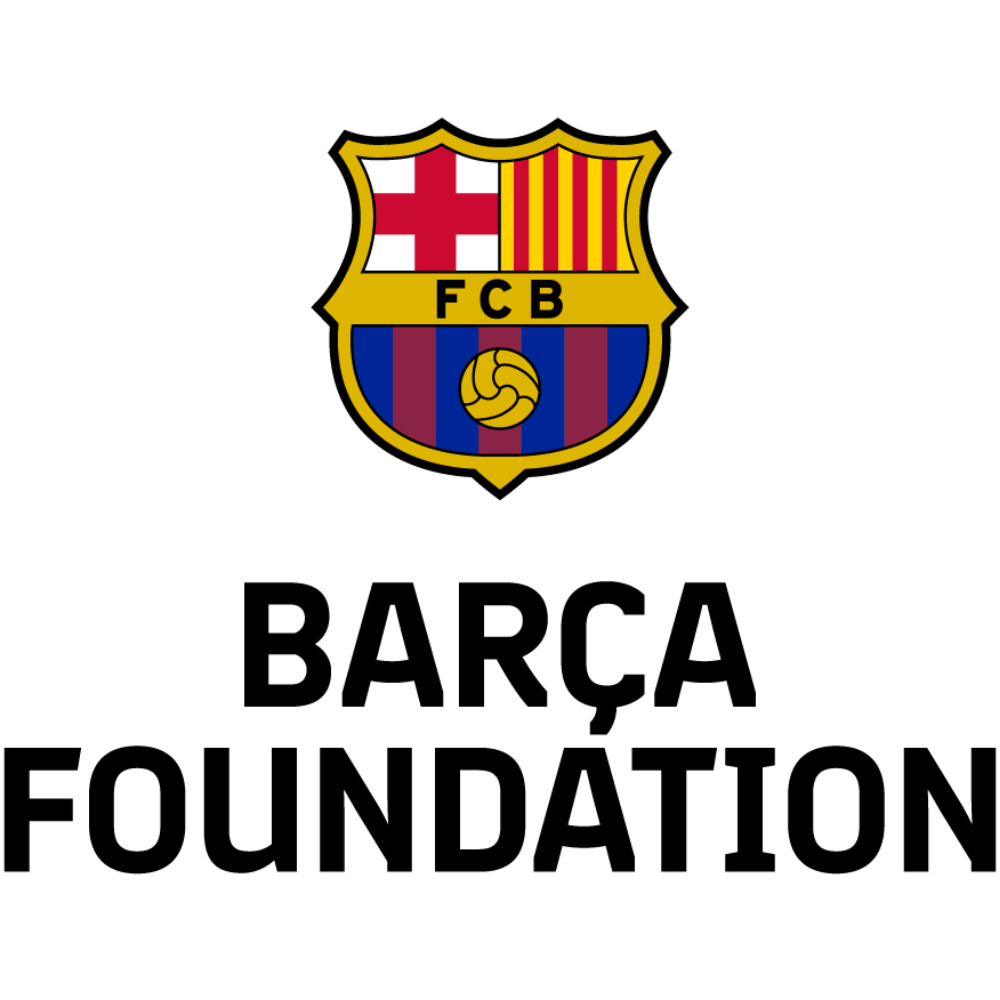
Barça Foundation – Against Bullying

Barça Foundation – For Refugees

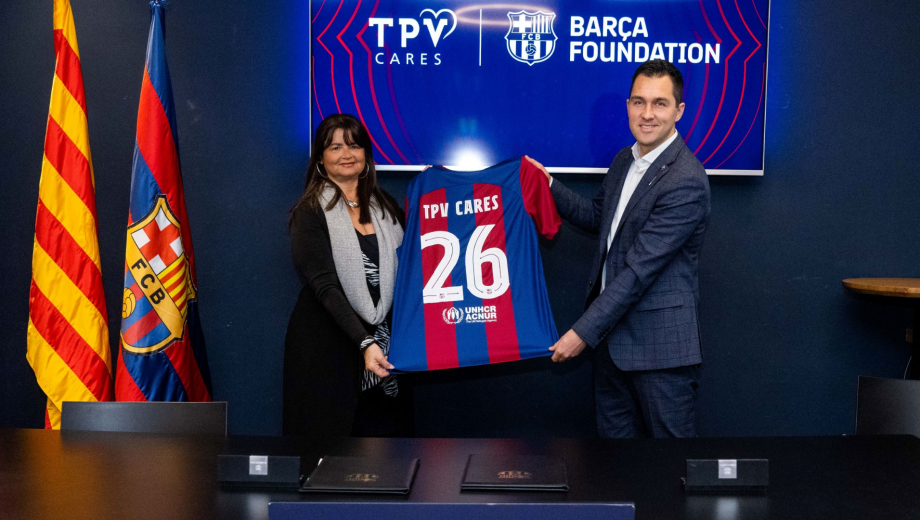
FC Barcelona provides audiovisual technology for vulnerable children with their new partner

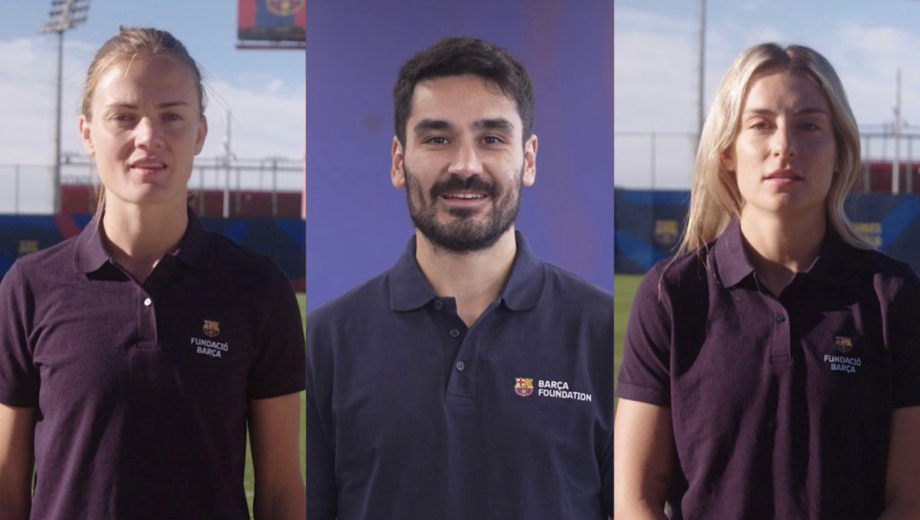
FC Barcelona Foundation has launched a new campaign to raise awareness of its work

